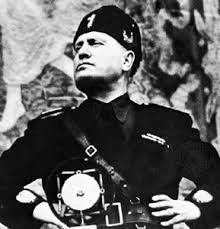This might be the most direct, obvious one yet. 
The UN document on democracy and anti-racism has them mad triggered.
Trump appointee guts UN document on racism, says leaders don't have duty to condemn hate speech - CNNPolitics
Here are some of the highlights:

I can't find a picture - maybe they keep photos of foreign service officers off the webs or something?
Apparently, he's best friends with Stephen Miller and is rabidly anti-refugee.

The UN document on democracy and anti-racism has them mad triggered.

Trump appointee guts UN document on racism, says leaders don't have duty to condemn hate speech - CNNPolitics
A Trump administration appointee to the State Department tore into standard UN documents that condemn racism as a threat to democracy.
The deputy assistant secretary for refugees and migration, a foreign service officer promoted by the White House to an unusually senior position for his rank, disputed the idea that leaders have a "duty" to condemn hate speech and incitement, and repeatedly rejected use of the words nationalism, populism, and xenophobia.
Here are some of the highlights:
"The drafters say 'populism and nationalism' as if these are dirty words," wrote Andrew Veprek, the deputy assistant secretary for refugees and migration, in documents obtained exclusively by CNN. "There are millions of Americans who likely would describe themselves as adhering to these concepts. (Maybe even the President.). So are we looking to here condemn our fellow-citizens, those who pay our salaries?"
In response to one section that says national leaders have a responsibility to condemn hate speech, Veprek writes, "'duty to condemn' goes too far. Our public figures can't be obliged to police every intolerant thought out their at the risk of being condemned for intolerance themselves."
And he repeatedly argues against using the word "xenophobia," or the fear of foreigners, writing in side notes that he has concerns over "the malleability of the term now and in the future."
"[W]hat real or perceived offense is next to be considered 'xenophobic?'" he writes. "How does that square with our historic respect for the right of free expression? The drafters need to focus on behavior and actions - which states can control - rather than attitudes and states of mind."
Veprek appears to have struck out an entire section that links fighting racism with building a diverse democracy, crossing out the language, "acknowledging the linkage and complementarity of the combat against racism, racial discrimination and xenophobia with the long-term construction of a democratic, non-discriminatory and multicultural society, based on the recognition, respect and promotion of cultural, ethnic and religious diversity."
Veprek instead makes a case against multiculturalism in his comments. "What's the evidence for such 'complementarity?' Some commentators assert that a unifying culture (as opposed to multiculturalism) is the best way to promote social trust and combat racism."
The edits take issue with a passage that calls out racism in politics, crossing out language expressing concern over "the rise of extremist political parties, movements and groups that seek to normalize racism," as well as "xenophobia" and incitement of hatred and violence.
The phrase "normalize racism," the internal edits state, "is vague and has no legal definition."
Veprek attacks the statements throughout, questioning many of their premises, and objecting in particular to language that says the UN remains "alarmed at the rise of racism, racial discrimination, xenophobia and related intolerance in political circles."
"To refer to the 'rise' of racism resumes [sic] (1) there was some more innocent time when racism didn't exist in the world; or (2) racism is increasing over some unspecified previous time," Veprek writes. "Is there evidence for either of these assertions?"
Veprek takes issue with a section that blasts public officials who engage in hate speech, which reads: "acts of racial violence, hate speech and incitement to hatred do not constitute legitimate expressions of opinion, but rather unlawful acts or offenses which incite violence, and that when government officials and public authorities (who) have a duty to condemn and where applicable prosecute such offenses engage in hate speech, they undermine the right to non-discrimination and endanger democracy." The language referring to hate speech and incitement is crossed out, as is the section about leaders who engage in hate speech.
"The new language is not true," the edits state, "and is inconsistent with freedom of expression and the US Constitution."
Also crossed out in one section: "freedom of expression should not be detrimental to the rights and freedoms of others, including the right to equality and non-discrimination."

I can't find a picture - maybe they keep photos of foreign service officers off the webs or something?
Apparently, he's best friends with Stephen Miller and is rabidly anti-refugee.
“My experience is that he strongly believes that fewer refugees should admitted into the United States and that international migration is something to be stopped, not managed,” the former U.S. official said, adding that Veprek’s views about refugees and migrants were impassioned to the point of seeming “vindictive.”
Last edited:
 So what the hell are they complaining about Maxine Waters for?
So what the hell are they complaining about Maxine Waters for? 







